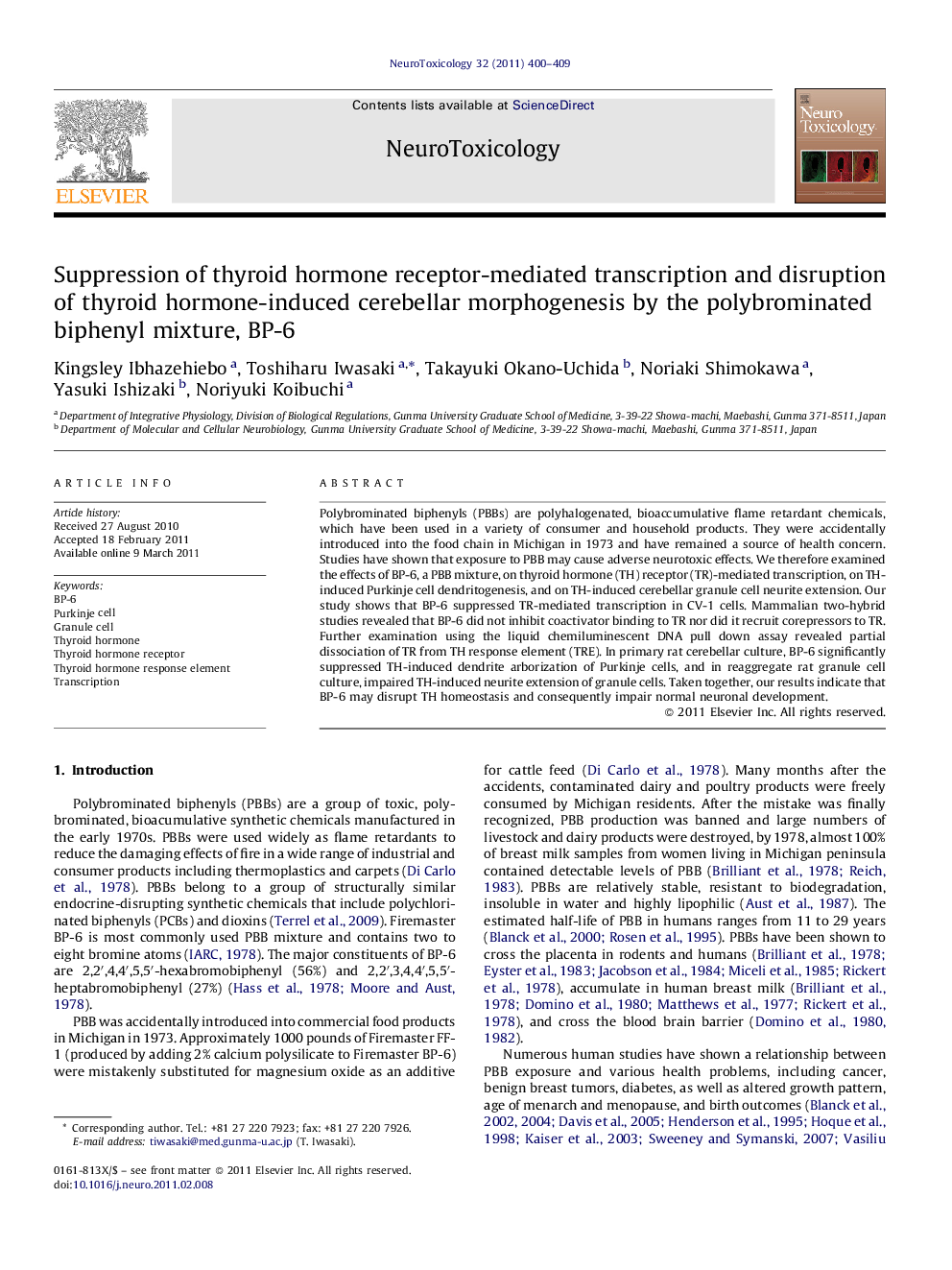| Article ID | Journal | Published Year | Pages | File Type |
|---|---|---|---|---|
| 2589866 | NeuroToxicology | 2011 | 10 Pages |
Polybrominated biphenyls (PBBs) are polyhalogenated, bioaccumulative flame retardant chemicals, which have been used in a variety of consumer and household products. They were accidentally introduced into the food chain in Michigan in 1973 and have remained a source of health concern. Studies have shown that exposure to PBB may cause adverse neurotoxic effects. We therefore examined the effects of BP-6, a PBB mixture, on thyroid hormone (TH) receptor (TR)-mediated transcription, on TH-induced Purkinje cell dendritogenesis, and on TH-induced cerebellar granule cell neurite extension. Our study shows that BP-6 suppressed TR-mediated transcription in CV-1 cells. Mammalian two-hybrid studies revealed that BP-6 did not inhibit coactivator binding to TR nor did it recruit corepressors to TR. Further examination using the liquid chemiluminescent DNA pull down assay revealed partial dissociation of TR from TH response element (TRE). In primary rat cerebellar culture, BP-6 significantly suppressed TH-induced dendrite arborization of Purkinje cells, and in reaggregate rat granule cell culture, impaired TH-induced neurite extension of granule cells. Taken together, our results indicate that BP-6 may disrupt TH homeostasis and consequently impair normal neuronal development.
